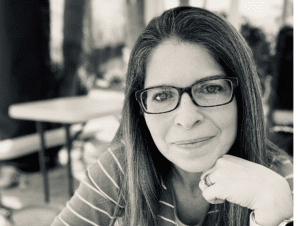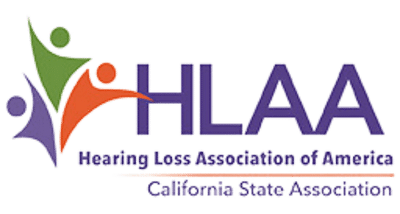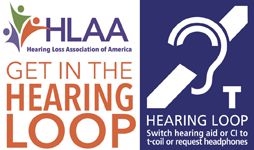 Written by HLAA Board Member – Janna Rovniak – you can follow along with her hearing journey at www.hardofhearingmama.com
Written by HLAA Board Member – Janna Rovniak – you can follow along with her hearing journey at www.hardofhearingmama.com
Have you ever considered navigating a store or the airport without using your voice?
I was born deaf/hard of hearing and grew up using spoken language(s). Not being exposed to a Deaf culture, it seemed normal to me that as a society we only use our voices to communicate.
One day I came across an Instagram reel in which an ASL user reminisced about using their voice in college and struggling to get accommodations. Their professor eventually asked them, “if others won’t accommodate you, why would you accommodate them?”
I suddenly realized that all my life, I have been the person who accommodates. I accommodate the hearing world by speaking, wearing hearing devices, attending speech therapy, making sure others can understand me, as well as providing accommodations for myself if one wasn’t provided.
Because I use my voice, others tend to think that I don’t need accommodations. This often leads to a breakdown in communication. Where I might be trying to understand all the words and perhaps trying to explain, a hearing person may start talking louder to get their message across and show visible frustration.
The entry of masks into our society at the start of the pandemic led to more communication barriers. There were times I would give up trying to get requested information.
One day I decided to see what would happen if I stopped using my voice in public spaces.
How do you communicate with your voice off?
I use an app on my phone called “Make it Big” which allows me to type out large print text. I use it when getting a prescription at the pharmacy, asking questions in stores, and at the airport.
Turning off my voice was empowering. I wasn’t struggling to communicate. I would show my message, and people understood that they needed to accommodate me. We wouldn’t go back and forth multiple times trying to understand each other. When people realized they couldn’t speak back to me, they were quick in taking out a pen and paper to write, phones to type, or even using gestures to point. It made communication quick and efficient but most importantly, it let people know that I need an accommodation.
Is it deceiving to let people think you don’t speak?
My oral communication provides access for the hearing world. I still work hard to understand and piece things together. Making out some words does not always provide access for the whole situation.
One example is when I stopped to order a bagel at a loud and busy airport. I typed and showed my order to the employee. He asked, “do you want the bagel toasted?” I accessed the question, but my instinct kicked in to point to my ears indicating that I couldn’t hear. He picked up his phone and typed the question. I nodded and went to wait. There were 15 other people waiting for their bagels. Orders were called out with masks on. I could not hear or access the callout from the distance. Because this employee was aware I needed an accommodation, he pointed to me when my bagel was ready. If I had verbally answered him about the toasted bagel, he would have never known an accommodation was needed. This step avoided potential confusion for both of us in figuring out which bagel was mine. Better yet, it educated about accommodations.
What did I learn?
Am I advising to stop using your voice? Absolutely not. Especially if this makes you uncomfortable. What I‘m saying is there are lessons to be found in the way we communicate by trying a different approach. I learned that:
I can disclose my disability, without over explaining. When I try to explain my disability first, people are confused. If I state what I need versus trying to explain, people are happy to accommodate.
Accessibility is not my responsibility alone. Communication is a two-way street and I do not need to feel embarrassed to make my needs known. This helps me avoid fight or flight mode where I might get frustrated or leave the situation without the information I need.
Taking ASL classes really helped in my comfort to communicate without my voice. While not mentioned in this article, ASL classes are a great way for deaf and hard of hearing people to learn to communicate without relying on their voice as well as meet deaf and hard of hearing peers.
Disclaimer: For turning off your voice in any situation, use your best judgement and comfort level. If it doesn’t feel right or you don’t feel it will help you, please stay in the mode you are comfortable with.



